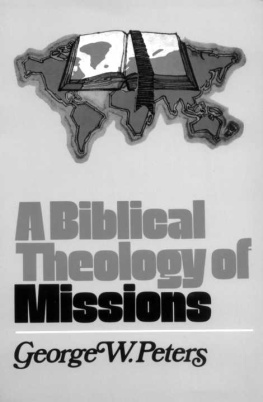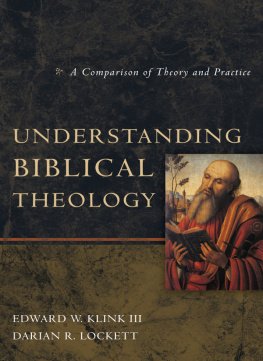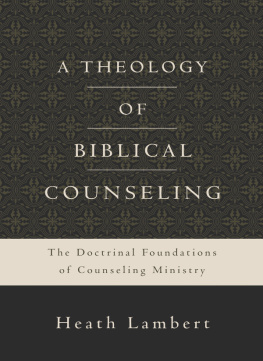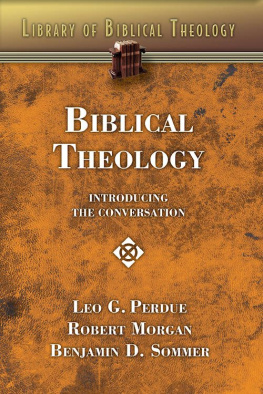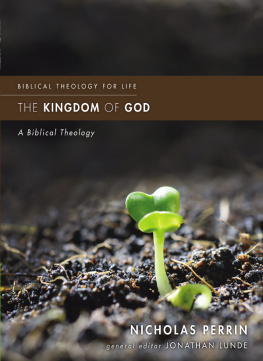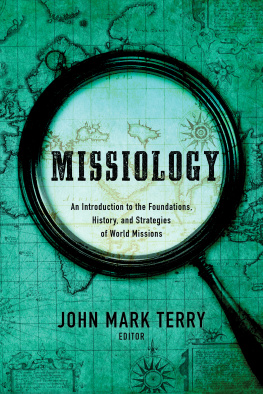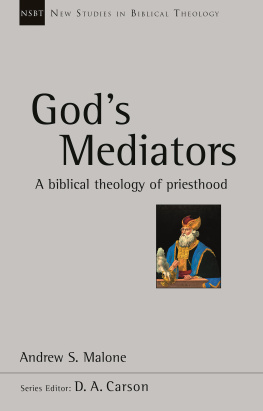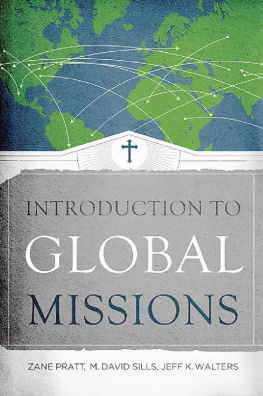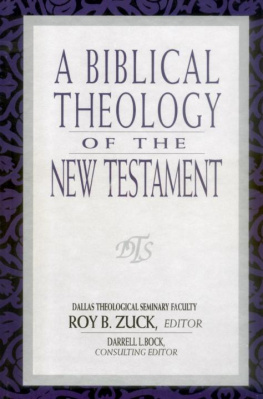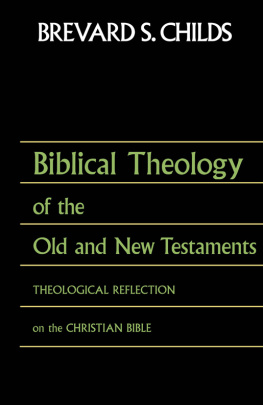George W. Peters - A Biblical Theology of Missions
Here you can read online George W. Peters - A Biblical Theology of Missions full text of the book (entire story) in english for free. Download pdf and epub, get meaning, cover and reviews about this ebook. year: 2010, genre: Religion. Description of the work, (preface) as well as reviews are available. Best literature library LitArk.com created for fans of good reading and offers a wide selection of genres:
Romance novel
Science fiction
Adventure
Detective
Science
History
Home and family
Prose
Art
Politics
Computer
Non-fiction
Religion
Business
Children
Humor
Choose a favorite category and find really read worthwhile books. Enjoy immersion in the world of imagination, feel the emotions of the characters or learn something new for yourself, make an fascinating discovery.
- Book:A Biblical Theology of Missions
- Author:
- Genre:
- Year:2010
- Rating:5 / 5
- Favourites:Add to favourites
- Your mark:
- 100
- 1
- 2
- 3
- 4
- 5
A Biblical Theology of Missions: summary, description and annotation
We offer to read an annotation, description, summary or preface (depends on what the author of the book "A Biblical Theology of Missions" wrote himself). If you haven't found the necessary information about the book — write in the comments, we will try to find it.
A Biblical Theology of Missions — read online for free the complete book (whole text) full work
Below is the text of the book, divided by pages. System saving the place of the last page read, allows you to conveniently read the book "A Biblical Theology of Missions" online for free, without having to search again every time where you left off. Put a bookmark, and you can go to the page where you finished reading at any time.
Font size:
Interval:
Bookmark:

of Missions
of Missions
by
GEORGE W. PETERS

Parts of the following chapters are reprints, with adaptations, of articles by the author:
Chapter 5. The Missionary Task
The Nature of the Missionary Task
From "Missionary Responsibility: Changeless and Relative," Evangelical Missions Quarterly 1, no. 4, pp. 29-35.
Chapter 6. The Church and Missions
The Church in Missions
From "The Church in Missions," Bibliotheca Sacra 125 (1968) : 45-55.
The Missionary Society as the Sending Agency.
From "The Missionary Society as the Sending Agency," Bibliotheca Sacra 125 (1968):116-22.
Chapter 7. The Instruments of Missions
The Call of God and the Ministry of the Word
From "The Call of God," Bibliotheca Sacra 120 (1963) : 322-33.
Summary and Conclusion
From "The Primacy of Missions," Bibliotheca Sacra 1.19 (1962) : 335-41.
THIS IS AN IMPORTANT BOOK. It touches on all of the issues fundamental to missions in our time. Probably no specifically missionary book has ever undertaken as profound and comprehensive a treatment of the subject as this one. Add to this the significant fact that the author is clearly identified with the conservative evangelical position. Unfortunately, serious and substantial missions literature is in short supply from those of us who share that commitment.
Many current books on missions which are influential and valuable are flawed by theological ambiguity and tentativity. On the other hand, strangely enough, much of what is written with impeccable theological precision lacks missionary passion. Dr. Peters has managed to get together and keep together a broad, biblical, theological affirmation with missions right at the heart of it. The distinctiveness of the book is the way in which it unifies and integrates the whole range of theological themes in and around the idea of missions.
The style and content of the book itself will engage the attention of many readers. The text is illustrated and supported with an immense amount of Scripture correlated in an impressive way. There are many evidences that the author has read widely and examined the important literature on missions. The format and organization of the book itself is ambitious and engaging. All of these things will be noted in the reading. The thing that could be missed is the way in which the man behind the book has woven so much of himself into the material he has written.
I can best serve those who happen to scan this page by underscoring the vital relationship of the "Personal Perspective" as presented in the Preface to the rest of the book. George Peters has succeeded in breathing something of his own spirit into these pages. His sturdy, unequivocal, theological stance is evident on every page. The wealth of his wide-ranging contacts and experiences as a "citizen at home" in several cultural and linguistic worlds gives credence to his claims. The knowledge derived from his indefatigable and peripatetic missions study is reflected in many ways. The elements of his Mennonite heritage and those of his Dallas Theological Seminary loyalties show through at certain points and sometimes combine in interesting and helpful ways. There is here a view of missions that is authentically biblical and soundly theological, but it is also important to know that it is in the inimitable style of Professor George Peters.
As is characteristic of the author, this whole volume has an emphatic finality about it. However, it certainly does not represent the last word on all of these truths. In fact, the book is a kind of index to areas that invite and require the same kind of diligent scholarship that led to the preparation of this volume. It is to be hoped that Dr. Peters and others who share his missionary theology will persevere in the preparation of other publications on these great and urgent themes.
J. F. SHEPHERD
Education Secretary
Christian & Missionary Alliance
MISSIONARY THEOLOGY IN PERSONAL PERSPECTIVE
THIS PRESENTATION of Biblical Theology of Missions is the outgrowth of years of studies and teaching in theology and missions. It is my impression that the Bible is not a book about theology as such, but rather, a record of theology in mission - God in action in behalf of the salvation of mankind. I believe Georg F. Vicedom comes very near to biblical thinking when he says, "The Bible in its totality ascribes only one intention to God: to save mankind."'
It is understood throughout the Scriptures that the end result of such Missio Dei will be the glorification of the Father, Son and Holy Spirit. In the presentation of the subject I have taken Christ as the center and starting point. It is my conviction that the Bible must be interpreted Christocentrically, as Christ Himself interpreted the Scriptures to His disciples (Lk 24:25-27, 44-49). Christ is the center of revelation and also the key to its understanding.
I make no apology for accepting the Bible uncritically and authoritatively. The Bible is the basis and source of faith and not the result of faith. I am much concerned to bring everything under the judgment of the Word. Without hesitation I accept the inerrancy of the biblical record, the historicity of the foreword of the Bible - Genesis 1-11, the Mosaic authorship of the Pentateuch, and the historic, conservative and evangelical position of all the books of the Bible. I do not take such a position blindly, nor because I am not acquainted with the modern and higher criticism, the debate about the revelation and inspiration, and authenticity and integrity of the Book. For several years I listened carefully and studiously to the philosophical and critical approaches to the Bible. I found the theories wanting, for they presented themselves to me as neither revelational, historical nor rational. They lacked historical evidences and authorita tive criteria. They built neither my faith nor my life. They were subjective, uncritical speculations. They did not nurture missions' motivation or create missionary dynamic. The theories failed to captivate my heart or dynamize my volition. Thus I abide with the Bible as my guide, directive and authority.
I also want to say that I am well acquainted with the writings of modern councils and men. I have read and digested the reports of the great and historic councils sponsored by the International Missionary Council, and The International Review of Missions has been on my reading list for many years. Such recent books as edited by Gerald Anderson and the writings of Max Warren, Douglas Webster, John V. Taylor, Stephen Neill, Lesslie Newbigin, Johannes Blauw, Hendrik Kraemer, Wilhelm Andersen, R. K. Orchard, Daniel T. Niles and many others have not gone unnoticed.
If the thinking of these men is not reflected in my book it is because I have consciously and deliberately avoided all conflict. My book is not a polemic; it is an exposition of the missionary intent of God as I see it in the progressive unfolding of the Bible, regardless of what other men have said or are saying. I write neither to refute nor to correct but to expound, thus controversy has been avoided at all cost. It is my hope that this will contribute rather than subtract from the value of the writing.
Font size:
Interval:
Bookmark:
Similar books «A Biblical Theology of Missions»
Look at similar books to A Biblical Theology of Missions. We have selected literature similar in name and meaning in the hope of providing readers with more options to find new, interesting, not yet read works.
Discussion, reviews of the book A Biblical Theology of Missions and just readers' own opinions. Leave your comments, write what you think about the work, its meaning or the main characters. Specify what exactly you liked and what you didn't like, and why you think so.

